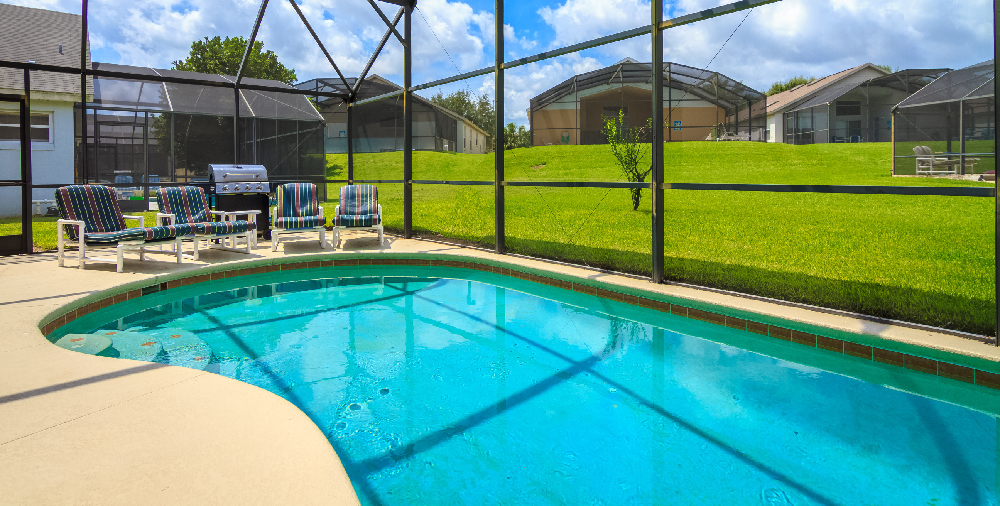Swimming in your pool is a great way to relax after a long day or a great opportunity to have friends and family over. However, maintaining your pool can take a lot of time and effort, so you may need a weekly pool service in Scottsdale.
This guide explores why chemical balancing is vital, any trouble signs you should look out for, and why hiring a professional team is your best bet.
The Top Reasons Why You Should Balance Your Pool Water Chemicals
Many tools and devices can help keep your pool clean, including skimmer baskets and pool pumps. Unfortunately, these devices don’t resolve everything and, in some cases, are only involved in skimming the surface of your pool.
To better clean their pools, homeowners will use chemicals like chlorine shock alongside experimenting with different types of filters. However, improperly balancing your pool chemicals can result in the following issues:
Corrosion
Having improperly balanced pool chemicals can result in corrosion of varying degrees. In these unstable environments, your pool’s components can corrode, such as rusting away your pool ladder.
While replacing your pool ladder might not be a huge expense, corrosion can also affect very expensive parts like your pool filter. Your pool filter is a very crucial and costly part, and no homeowner should have to replace it long before its regular lifespan.
Eye and Skin Irritation
While pools can significantly improve a person’s health and well-being, there’s always a risk for eye and skin irritation since pools need chemicals. However, eye and skin irritation generally isn’t an issue when you properly balance your pool’s chemicals.
We use pool chemicals to keep our pools clean and prevent bacteria from wreaking havoc. After all, our pools are essentially giant bodies of standing water. Unbalanced pool chemicals can create colonies of bacteria to appear, causing eye irritation and skin rashes.
Sometimes such skin rashes and eye irritation can be minor nuisances, but other times they can turn into serious health concerns.
Reduced Aesthetics
Everybody wants to swim in a pool that has clear, sparkly water. However, if your pool’s pH levels are too high, then this will result in cloudy water, deterring swimmers from diving in.
What Are Some Common Signs Indicating You Need to Balance Your Pool Chemicals?
Knowing when your pool has too high or too low pH levels can be tricky to determine, especially if you’re a new pool owner. A weekly pool service from a qualified pool guy ensures properly balanced pH levels. Some signs of an improperly balanced pool include:
- Algae growing in your pool
- Pool toys and equipment corroding, deteriorating or losing their color
- In rare cases, corroding metal creates stains throughout your pool
- Cloudy water
- Irritated nose or eyes whenever you swim
- Dry or itchy scalp or skin
- A buildup of calcium
- Your pool filter or other components clogging
- Your pool grout or plaster starting to corrode
When facing any of these issues, you should call a professional pool maintenance crew. The right crew can help put your pool’s health back on track and give you tips for maintaining it n the future.
The Three Main Pool Elements You Should Balance
Regarding your pool and its chemical balance, you should look after three main elements:
1. Your pH Levels
Your pH levels determine your pool’s acidity or basicity water, with a scale ranging from 0 to 14, with seven designating the neutral point. If you have a level under seven, then you have acidic water. Anything above seven indicates a basic water environment.
Ideally, you should keep your pH levels between 7.4 and 7.6. Acidic water levels result in corrosive water, while basic water levels mean your pool can turn cloudy and have scaly deposits.
Fortunately, balancing your pool’s pH levels is relatively straightforward. If your pH levels are below the optimal range, then add an acidic agent. If your levels are too high, then add a base.
2. Your Total Alkalinity
Total alkalinity is what helps keep your pH levels stable. Total alkalinity surveys alkaline substances, hydroxides, and carbonates. You should aim for a total alkalinity level of between 80 and 120; balancing these levels work the same as balancing your pH levels.
3. Your Calcium Hardness
You use calcium hardness to measure your pool’s softness or hardness, and you should aim for a level between 180 and 200 ppm (parts per million).
Once levels reach further than 400 ppm, calcium and magnesium deposits can start forming on your pool’s ladders, lights, surface, and more. These buildups lead to cloudy water and may require you to drain your water levels and replace them with new, softer water.
Having low ppm levels can also be an issue, causing corrosion. However, you can add a substance to raise your pool’s calcium levels.
Why You Should Explore Weekly Pool Services in Scottsdale, AZ
Properly maintaining your pool becomes easier with a weekly pool service.
While many tools and chemicals on the market can help manage your pool, a professional team always produces the best results. Furthermore, you often save time and money by using a service like McCallum’s Pool Service LLC.
Based in Scottsdale, Arizona, our team provides top-notch pool services to luxury homes. Whether you’re dealing with cloudy water or want to whip your pool into shape for summer, we can help.
Call our McCallum’s Pool Service LLC team at (480) 734-2495 to learn more about our services in Scottsdale, AZ!

